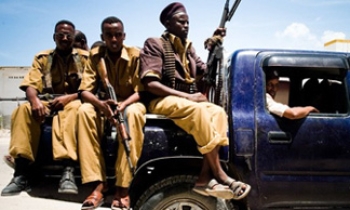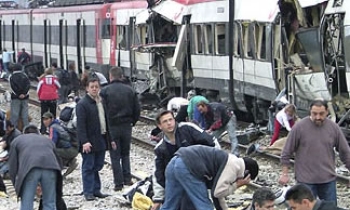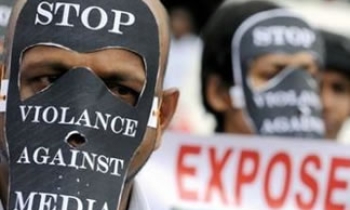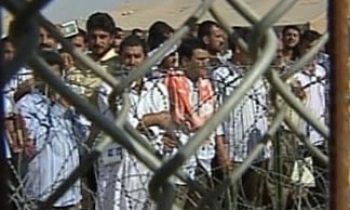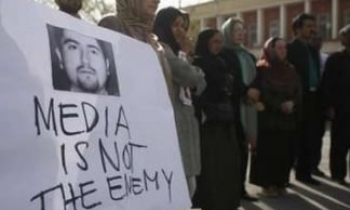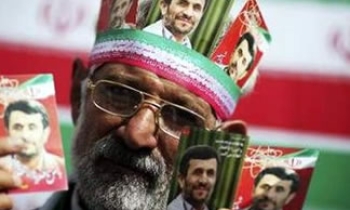The Iraqi Government has promised to shortly issue a full report on targeting and killings of journalists since the invasion of the country five years ago.
More than 250 journalists and media staff have died since 2003 says the IFJ-affiliated Iraqi Union of Journalists. With a media killing every five days over the past two years casualties in Iraq have pushed the global death toll of journalists to record levels in 2006 and 2007.
“We welcome this promise of a full report on the targeting of journalists,” said Aidan White, International Federation of Journalists (IFJ) General Secretary, after meeting Iraq Interior Minister Jawad Bolani on January 6. “It sends a signal that the government is committed to hunting down the killers of journalists.”
White, joined by IFJ Middle East Coordinator Monir Zaarour and Peter Murdoch, journalists’ leader of the Communications, Energy and Paperworkers Union of Canada, an IFJ affiliate in Canada, met Vice President Tarik Al-Hashimi, government ministers and parliamentary leaders as well as leading media in a visit aimed at strengthening journalism in Iraq.
A series of bomb explosions killed 14 people in Baghdad as the delegation met with Jawad Bolani, shattering the relative peace of life in the city in recent weeks, but White remains confident that 2008 provides an unprecedented opportunity for Iraqi journalism.
“Iraq is moving slowly from crisis conditions into a period of transition when peace building, reconciliation and restoring public confidence in democracy will be on the news agenda,” he said. “People will need professionalism not propaganda in the months ahead and media must become ethical and determinedly independent from political pressure.”
IFJ and the Iraq Union of Journalists used the visit to strengthen their commitment to journalists’ safety and agreed a national programme of work for the Iraq Media Safety Group, an initiative established last year with the support of the International News Safety Institute (INSI). Government and Parliament leaders also pledged their financial support for an international safety fund being launched to provide help to the families and children of media victims.
There was also agreement on professional initiatives including a training programme on how journalists and media report and expose corruption — a key area of concern highlighted by Mussa Faraj, the Iraq commissioner for Transparency and Accountability, who gave the delegation details of a number of recent scandals that have tainted the rebuilding process.
There are also plans to organise discussions on politics and journalism to try to weaken the grip that some political groups hold on some media as well as focused training initiatives on health and social policy.
White said that the Iraq story is changing dramatically and international news media should look beyond the violence to evidence of increasing confidence within Iraqi society.
“The threat of sectarian violence and indiscriminate terrorism remains, but a corner is being turned and media have a key role to play in supporting the pluralism and open debate that will be needed if talk of a durable peace and reconciliation is to have any meaning,” he said.

